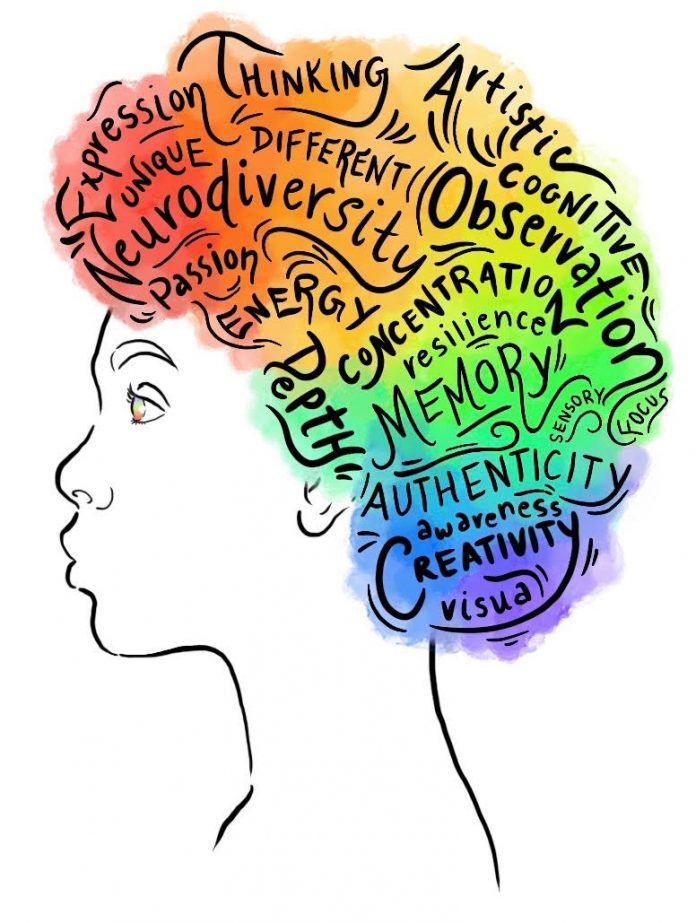The COVID-19 pandemic has caused far-reaching effects in all areas of life and no one has been spared by its consequences. Students at the College of William and Mary, alongside individuals at other universities across the nation, must deal with the shift to online classes with little or no preparation. Even for a “normal” student, the shift is extremely difficult, time-consuming and ever-complicated, but for some neurodiverse students, it is even more so, verging on the semi-impossible.
I have struggled with severe ADHD all of my life, and most likely will for the remainder of it. In many aspects, higher education was easier than high school in terms of my focus, as I was not expected to go back-to-back, or go without any neurodiversity aid and support. University-level classes, at least at the College, are highly interesting and engaging, and since so many of my classes are discussion based rather than lectures, I have less difficulty focusing than I used to. With the switch to online classes, however, I feel like I’m back in the height of my ADHD struggle, weighing my inability to pay attention with the awful side effects that my medication often produces.
One of the symptoms of ADHD is the inability to focus on auditory stimuli, particularly when it is accompanied by a lack of visual stimuli. With the switch online, courses have had to become more lecture-based rather than discussion-based, given the constraints of technology and learnability. This correlates to a greater amount of auditory teaching rather than visual or interactive teaching. Staring at a screen and listening to a professor speak for an hour and twenty minutes every class period is incredibly draining, as I have to continuously order myself back on track when I realize I have zoned out. I end up missing a lot of what professors are saying, and it impacts both my confidence in coursework as well as my grades.
“I end up missing a lot of what professors are saying, and it impacts both my confidence in coursework as well as my grades.”
Students with ADHD are not the only ones; dyslexic students at the College will also find themselves struggling in the weeks to come. Difficulties in reading off of a screen are a common symptom of dyslexia, and although this can be slightly mitigated with changing screen colors/filters, it does not completely solve the problem. When professors bring up reading materials via screen sharing on Zoom sessions, dyslexic students may struggle with finishing in the allotted time before they are expected to finish or reflect upon the chosen reading.
As I have heard from a close friend, their Zoom sessions are problematic because of their social anxiety tendencies; having to perform in front of the entire class via a computer screen is somehow monumentally tougher than in person. Of course, students have the option to mute themselves and not utilize video, but this is irrelevant in cases where you are expected to participate, either by answering a question or attempting group work in the breakout rooms.
Professors may also choose to record sessions, meaning that every contribution, physical or verbal, may be immortalized forever, a scary reality that may trigger some students with social or speech disorders. I had a number of speech issues growing up, and still carry some of the apprehension associated with speaking in front of a number of people, especially if it may be recorded and viewed multiple times. I can only imagine what students who still greatly struggle with these obstacles must be facing right now, as well as all other neurodiverse students who are confronting online course inconveniences.
“Only by working together and accepting all differences will the College successfully make it through this challenging time in our history and eventual legacy.”
All in all, these complications were unavoidable given such a short period of change and the dire situation which compelled the College’s officials to bring it about. However, it is imperative that professors, officials and other students be made aware of what neurodiverse students are facing beyond their computer screens. The College made the wise decision to allow pass/fail options for all courses, as far as I know, and I find it very appropriate and helpful. I highly encourage other students to take advantage of the allotments made, as well as reach out to Student Accessibility Services if they have not already. Only by working together and accepting all differences will the College successfully make it through this challenging time in our history and eventual legacy.


[…] Read all about it HERE […]